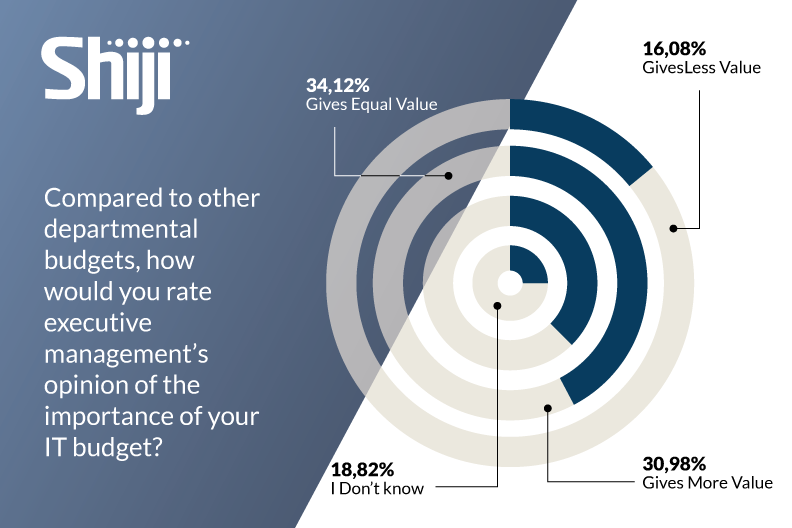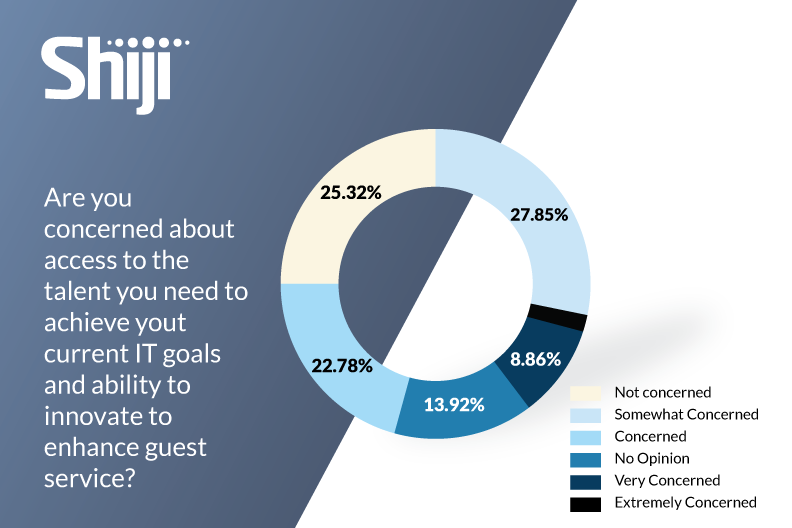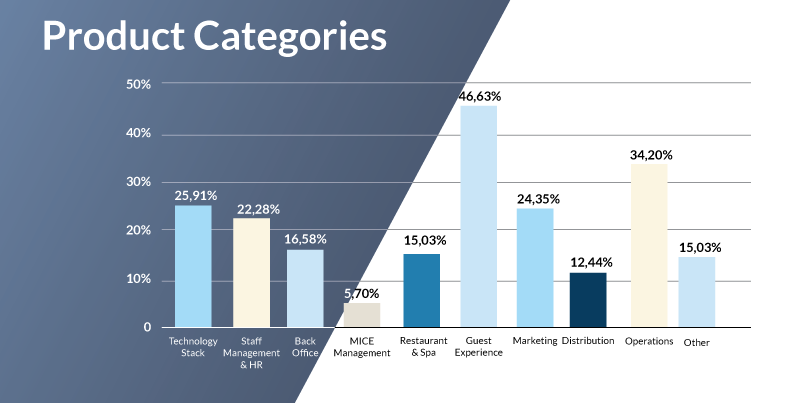Insights from Kevin King, COO of Shiji Group, from the 2019 Hospitality Technology Sentiment Survey Report, sponsored by Shiji and presented by HospitalityNet and HFTP.
The success of the hospitality industry has always been rooted in the provision of service and the continued cultivation of relationships. While the rapid advancement of mobile and cloud-based technologies are enhancing the ways hoteliers can interact with travelers, the underlying goal remains the same: to create an exceptional guest experience.
The most successful relationships are always based on communication and mutual understanding. At Shiji, we believe it is always important to look, listen, and learn–not only to your guests, but also to your partners, competitors, and the industry at large.
That is why we welcomed the opportunity to sponsor the HospitalityNet Sentiment Survey as a way to inspire communication, awareness and collaboration across the hospitality industry. The results of this study were revealing: Hoteliers across all segments believed that innovation, agility, and technological alignment were all critical elements of their competitive success. More specifically, the responses revealed three significant trends:
Technological Advancement is Driving Enhancements to the Guest Experience
Today, technology drives or supports nearly every touchpoint in the guest journey. Technology is playing a pivotal role in personalizing the guest experience, connecting hotels and restaurants with their guests, and allowing guests to more seamlessly connect with each other. Ultimately, if a hospitality company wants to be guest-centric, it has to embrace the change that comes with technological transformation.

Many hotels used to be tied to legacy systems which made it difficult for them to upgrade or scale the use of technology solutions in their businesses. Fortunately, we are now witnessing an industry-wide shift in favor of emerging cloud-based technology. The results of the Sentiment Survey reflect this progression. When asked how their executive management rates the importance of IT budgets, over two-thirds of the hoteliers surveyed said that management valued IT more (30.98%) or about the same (34.12%) compared to other departments. This sentiment is mirrored in their actual IT budgets: With the majority of hoteliers indicating that their IT budgets have either increased (43.14%) or have remained the same (21.57%) since last year.
Ultimately, this shift in investment priorities will drastically increase the amount of data available during the guest journey–from booking, to arrival, to in-stay and post-stay. No longer will hoteliers make broad predictions based on simple customer variables such as occupancy, average room rate, etc. Soon they will be able to connect with guests in real time, based on robust data that is actionable now. In this way, technology will enhance every aspect of hotel operations, from staff productivity, to revenue, to the guest experience itself.
Let Guests Use Their Technology to Shape Their Unique Journey
Still, it is important to emphasize that technological change must not take place in a vacuum. Technological investments must arise naturally from the unique needs of your business, and should improve some actual part of the guest journey.
Modern travelers expect convenience, personalization and “anytime, anywhere” service on the mobile device of their choosing. And it’s their journey that should dictate your strategy.
Today’s guests, especially Millennials, place a high value on self-service: They don’t want to have to wait in line, or talk to people to address mundane, administrative issues that could be handled automatically. They want to be able to use their technology to control their unique journey.
This shift towards self-service is reflected in The Sentiment Survey.
Technological investments this year will focus largely on guest experience platforms, operational management, and technology stacks. Guest experience platforms include applications which allow for mobile check-in, self-service, and enhanced personalization and convenience. Operational platforms and technology stacks, on the other hand, will help hoteliers to streamline their day-to-day operations and enhance staff productivity which, in turn, also contributes favorably to the guest experience.
With slow booking processes, traditional room keys, antiqued front desk procedures and a lack of in-room control systems being cited as common hospitality grievances, it comes as no surprise that The Sentiment Survey cites smart room controls, self-check-in, IoT, voice-activated assistants, and mobile keys as promising technological investments moving forward.

No More Walled Gardens: The Rise of Open API’s
A major issue facing the personalization of the guest journey is the fragmentation of customer data. In many ways, personalization is a function of data and platform connectivity: Technology platforms need to be able to “track” the guest through different devices, locations, and moments in the guest journey to tailor themselves to the guests’ needs. But none of this can happen when customer data is siloed in different technology systems.
This is why it is critical for technology providers to embrace Open APIs. Not only can Open APIs help hotels scale and integrate with third party platforms, but they can facilitate the level of data exchange needed to personalize the guest journey. API’s connect the various hospitality software, applications, and programs to optimize operations across every guest touchpoint.
According to the survey, an overwhelming 78.51% of respondents answered “yes” when asked whether open API’s are expected to gain greater traction versus standard bodies such as HTNG or OTA. This sentiment acknowledges the need for different systems from different vendors to connect seamlessly and intuitively to provide hoteliers with the comprehensive data needed to enhance the modern guest experience.

Working Together for the Greater Good
An old proverb says, “To go fast, go alone. To go far, go together.”
The relationship between technology providers must never be about strict zero-sum competition. Competition exists, of course, but all providers should be working to develop a series of open platform systems so that hospitality companies can craft the solutions that work for their guests. Nobody wins when technological solutions are hoarded in separated walled gardens.
The hospitality industry is currently experiencing a revolutionary transformation, and we all play a critical role in this exhilarating journey. Propelled by consumer trends, emerging technologies, and the explosion of mobile devices and cloud-based applications, now is the time for leaders to work together to develop the next-generation of solutions for the hospitality industry.






